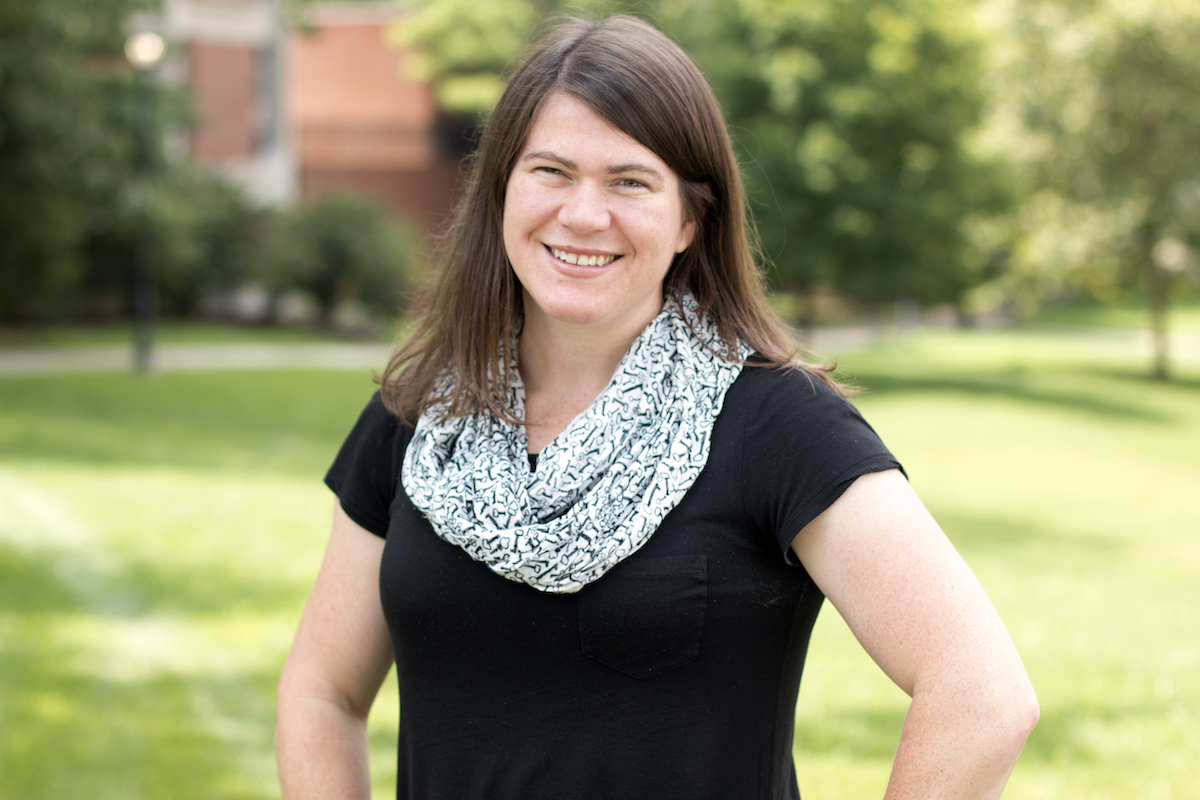Stephanie Meredith has a long history of advocating for inclusive policies and resources for individuals with a genetic diagnosis. She is the Medical Outreach/Lettercase Program Director for the Lettercase National Center for Prenatal and Postnatal Resources at the University of Kentucky’s Human Development Institute where she markets and distributes resources about genetic conditions such as Down syndrome to patients and providers and collaborates with top leaders in the disability and medical communities about the need for accurate, balanced, and up-to-date information for families learning about prenatally and postnatally diagnosed conditions. She also provides training and workshops to Down syndrome organizations nationwide to conduct professional prenatal outreach programs.
She began her work in genetics and disabilities studies over twenty years ago after the birth of her son, Andy, who has Down syndrome. Her background and training prior to that had been as a technical writer and college writing instructor.
But as a mother of a child with Down syndrome, she witnessed firsthand how finding accurate, balanced and up-to-date information was critical for families and realized her skillset made her uniquely suited to helping to create materials on genetics and disabilities that would serve patients and families’ needs.
This background motivates her continued passion to ensure that all families that receive a prenatal diagnosis for any condition get the full spectrum of information and resources about potential medical outcomes, as well as the full range of information about life outcomes and support services. This passion drove her to found Lettercase in 2010 to create a clearinghouse of accurate, balanced, and up-to-date information about various genetic conditions for expectant parents first receiving the news. The Lettercase National Center for Prenatal and Postnatal Resources was adopted as a program at the University of Kentucky in 2012, which develops and disseminates resources that discuss common medical conditions, available support and services, and common life outcomes in multiple languages.
In recent years, her work has expanded into advocacy and policy change. She currently serves on a Covid-19 subcommittee for the Center for Dignity for Individuals with Disabilities where she advocates for improving vaccine prioritization for individuals with disabilities. She has also published numerous academic articles on a range of topics, including genetics and prenatal diagnosis and equitable healthcare for people with disabilities across the lifespan. She is currently pursuing her doctoral degree in public health from Georgia State University.
She lives in Canton, Georgia with her husband and three kids, Andy, Kate and Lily, and her dog, a black lab named Cassie. She loves taking road trips with her family, hiking and enjoying the outdoors and never misses an opportunity to swim in lakes, rivers or waterfalls.
What makes GSF unique? How would you describe its mission?
GSF is unique as an organization that is singularly focused on providing quality patient care in genetic counseling services. But beyond that, as an organization, GSF is leading the way in addressing equity issues in genetic counseling, whether that comes from advocating for equitable access to genetic counseling services or creating equitable representations of marginalized people such as those with genetic disabilities. For example, GSF created a beautiful set of videos on prenatal genetic counseling that portrayed both the medical model of disability and the social model. Everyone at GSF is incredibly mindful of being respectful and inclusive of groups that have traditionally been left out of the genetic counseling space.
What are some of the biggest challenges facing GSF?
GSF advocates for the patient. But one of the biggest challenges facing the genetic counseling field is the complex relationship between the genetic testing industry with the genetic counseling field. We need to ensure that the genetic counselor on the other end of the line when someone is receiving counseling about a genetic testing result is not being paid by an entity that profits from that test. Because GSF is an independent, nonprofit organization, they can always put the patient’s needs first.
Another huge issue is the lack of access to genetic counseling because of a lack of insurance coverage for genetic counselors. In fact, many insurers base coverage on Medicare guidelines. But Medicare does not include genetic counselors as healthcare professionals that can be reimbursed.
That creates real problems for patients. Genetic counseling is a highly specialized and highly complex field. Patients need access to genetic counselors who can take the time to have challenging conversations about their health, and often about the health of their family as well, that is accurate, thorough and up-to-date.
Genetics is a rapidly evolving science. Most doctors simply don’t have the training or time to stay current on all the latest developments and are hard-pressed to cover the range of the social, emotional and health-related factors involved in a genetic diagnosis in a standard doctor’s appointment.
Genetic counselors are trained to cover the full range of social and emotional issues, as well as the health risks and outcomes, involved. Whether you’re talking about prenatal testing or genetic cancer risks or some other genetic concern, insurance needs to increase access to genetic counseling so that all patients have access to that level of care.
What motivated you to serve on GSF’s board?
The leadership of GSF has proven time and again their level of commitment to ethical behavior, putting patients first, and being invested in accessibility and inclusion when it comes to the disability community.
GSF invites people into the conversation, they are conveners. The organization is uniquely positioned to be able to break down the silos within the genetics field and create coalitions for a better, more inclusive vision of genetic counseling and support. They bring together providers, healthcare organizations, patient advocacy groups, academics and a host of other stakeholders to bridge divides within the various areas of genetics to advocate for a patient-centered approach to genetic health. That’s very important to me personally and professionally, and I wanted to be part of that movement.

